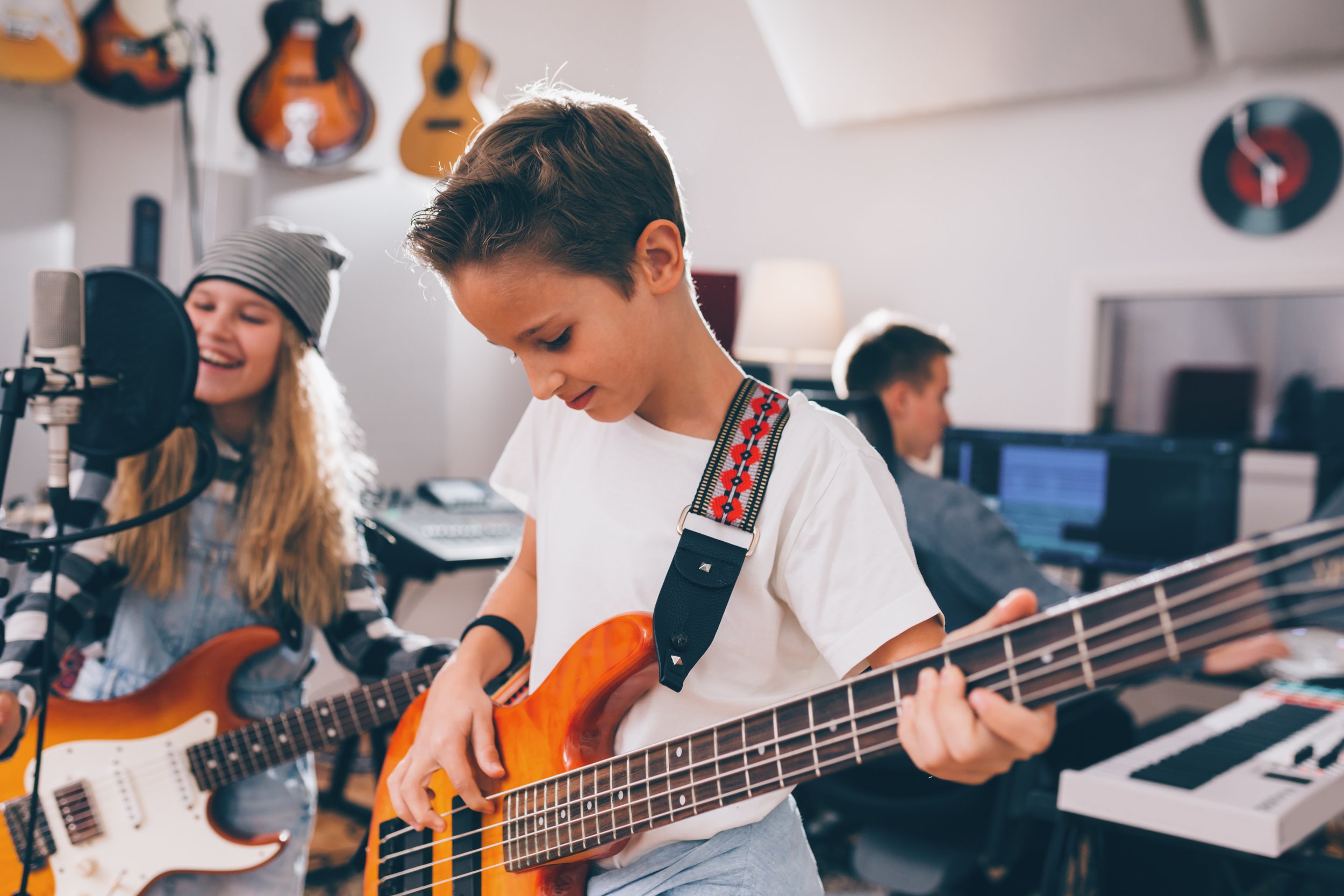The Role of Guitar Lessons in a Child’s Development
When parents sign their children up for guitar lessons, it’s often with the hope that they’ll learn a fun hobby or pick up a skill that brings a little extra joy into their lives. Guitar lessons are certainly an excellent way for kids to explore music, but their impact goes far beyond learning to play a few favorite songs. In reality, the guitar can become a powerful tool for growth, helping children discover new ways to think, feel, and express themselves.
At its heart, learning guitar is a journey of discovery. Through each note and chord, children experience the challenge of practice, the joy of progress, and the pride that comes from mastering something new. The benefits reach far beyond music, shaping children into more confident, resilient, and curious individuals.
Let’s explore the many ways guitar lessons can boost a child’s development.
Fostering Focus and Patience
Learning guitar is an exercise in concentration. Kids have to pay attention to finger placement, rhythm, strumming patterns, and the sound they’re creating, all at once. At first, this can feel challenging, but with steady practice, their focus improves. Over time, children learn how to tune out distractions and direct their attention to one task, a skill that helps them with schoolwork, reading, and other activities.
Patience is also a natural part of learning guitar. Mastering a new chord or moving smoothly between notes takes repetition and time. While there may be moments of frustration, small achievements and positive encouragement help children realize that real progress is built step by step. This experience helps them develop emotional resilience and the ability to work toward long-term goals.
Building Fine Motor Skills and Coordination
Playing the guitar is a playful way to build strong, nimble fingers and improve hand-eye coordination. Pressing on strings, changing chords, and keeping a steady rhythm all demand control and dexterity. These skills transfer to other areas of life, making it easier for kids to write neatly, use scissors, tie their shoes, or participate in sports that require grip and accuracy.
Guitar lessons give children a fun and rewarding way to practice the fine motor skills that are so important for everyday growth.
Enhancing Memory and Listening Skills
Guitar lessons are a powerful tool for building memory. Kids learn to recognize and remember chord shapes, strumming patterns, and entire songs. This kind of memorization and pattern recognition isn’t just for music; it also supports learning in reading, math, and other subjects.
Playing the guitar also sharpens listening skills. Children become more aware of pitch, rhythm, and tone, and they learn to listen closely to instructions and details. This kind of active listening makes them better students and more attentive communicators.
Encouraging Self-Expression and Emotional Growth
Music gives children a healthy outlet for their feelings. Sometimes, kids experience emotions that are hard to put into words. Playing the guitar allows them to express happiness, sadness, curiosity, or even boredom in a creative way. The guitar becomes a safe space for self-expression and emotional release.
As children learn new songs or try writing their own music, they start relating what they play to their own lives. This process nurtures not just emotional development, but also creativity, imagination, and independence.
Cultivating Confidence and Positive Discipline
One of the most rewarding aspects of learning guitar is seeing personal growth in action. If it’s mastering a new chord, finishing a song, or playing for family and friends, every achievement boosts a child’s confidence. Kids start to believe in their abilities and take pride in what they accomplish through effort and practice.
Guitar lessons also introduce discipline in a positive, enjoyable way. Short daily practice sessions help build routines and healthy habits. Because music is fun and engaging, kids are often more motivated to keep practicing. These habits carry over into school, sports, and everyday life.
Promoting Social Skills and a Love of Learning
While the guitar is often learned one-on-one, it creates many opportunities for social connection. Kids might play for family members, join a group class, or perform a duet with a friend. These experiences help children build teamwork, communication, and cooperation. Playing music together teaches kids to listen, share, and celebrate creative efforts.
As they grow, children discover there’s always more to explore in music. If they are trying new styles, learning to write their own songs, or picking up a new instrument, the journey is full of curiosity and self-discovery. Guitar lessons open the door to a lifelong love of learning.
Conclusion
Guitar lessons support children in so many ways. They improve focus, patience, memory, and motor skills while also nurturing creativity, confidence, and emotional expression. The routine of practice builds discipline, and the joy of making music inspires a love for learning.
If your child is just starting out or already strumming confidently, guitar lessons provide a foundation for growth in every area of life. More than just teaching music, the guitar helps children become resilient, expressive, curious, and self-assured individuals.

